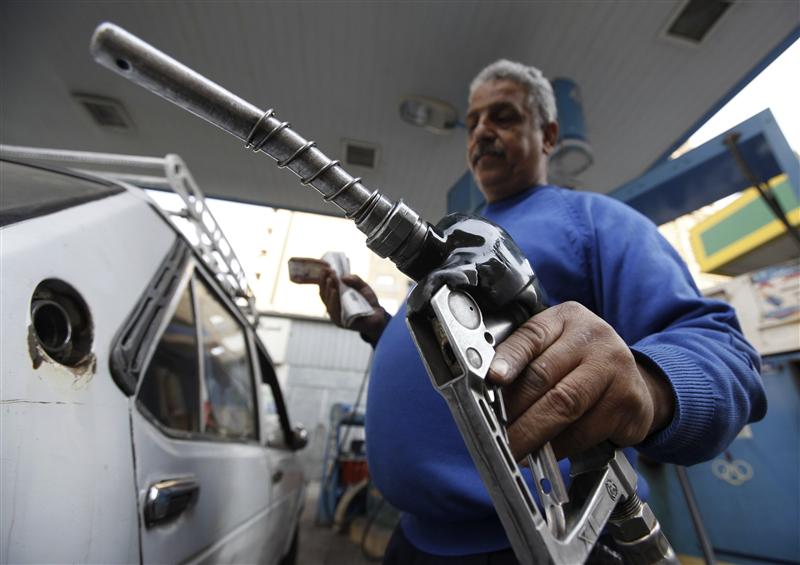Latest NEWS
- Aswat Masriya, the last word
- Roundup of Egypt's press headlines on March 15, 2017
- Roundup of Egypt's press headlines on March 14, 2017
- Former Egyptian President Hosni Mubarak to be released: lawyer
- Roundup of Egypt's press headlines on March 13, 2017
- Egypt's capital set to grow by half a million in 2017
- Egypt's wheat reserves to double with start of harvest -supply min
- Roundup of Egypt's press headlines on March 12, 2017
Egypt's EGPC to buy 65 pct of its oil product imports from UAE

A worker fuels a car in Cairo - Reuters
By Lin Noueihed
CAIRO, Sept 17 (Reuters) - Egypt will buy 65 percent of its oil product imports for the next year from the United Arab Emirates, in the latest Gulf lifeline to an economy rocked by three years of turmoil.
The deal, approved by the Egyptian government on Wednesday and announced in a statement, covers gasoline, diesel, heavy fuel and liquefied petroleum gas (LPG) that is used in homes.
Egypt has struggled to curb its swelling budget deficit whilst meeting soaring energy demands, resulting in daily electricity cuts around the country of 86 million people.
Lines at petrol stations and a shortage of gas were among the main public grievances against former President Mohamed Mursi of the Muslim Brotherhood. Oil-producing Gulf countries have come to Egypt's aid since the army, prompted by mass protests, ousted Mursi last year.
Egypt also introduced deep cuts to energy subsidies in July, which have resulted in price rises of more than 70 percent, as it seeks to curb public spending and fuel waste.
Egypt's cabinet said in a statement on the deal that the price was "appropriate" but gave no details.
An oil ministry official said last month, however, that Egypt was seeking to buy about $9 billion of oil products from the UAE and that some of the products would come as grants and the remainder under a credit agreement that would be repaid in installments.
The official said Egypt imports petroleum products worth around $1 billion to $1.3 billion a month.
The United Arab Emirates, Saudi Arabia and Kuwait have together provided Egypt with billions of dollars in grants, loans and petroleum products since Mursi's overthrow.
But Egypt wants long-term investments to improve the country's economy, which has been suffering ever since an uprising toppled President Hosni Mubarak in 2011.
It will hold a conference in February to attract investment and has already awarded major contracts to Gulf firms, including for the Suez Canal expansion project. (Reporting by Lin Noueihed and Omar Fahmy; Editing by Michael Urquhart and Clara Ferreira Marques)










